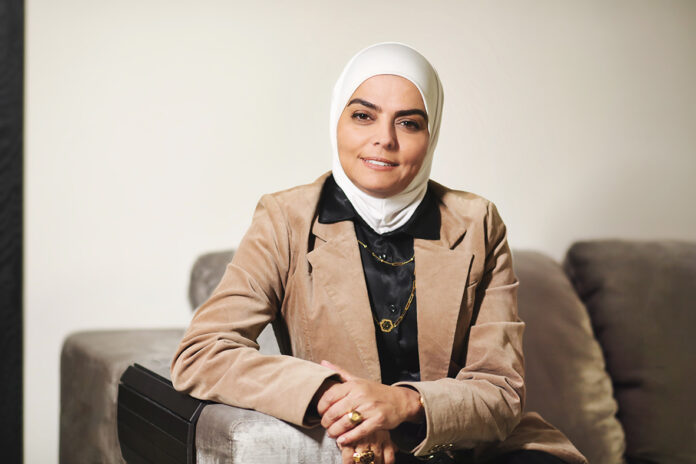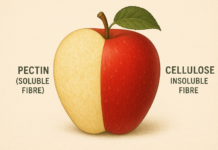Modern Women & Modern Politics
By Katie James, Family Flavours’ Writer
This month, we feature two change shapers working to reverse stereotypes and making a difference: Tamam Riyati of Jordan and Nicole Marina Lolas of Palestine.
In exclusive interviews, they share real and intimate insights into their lives that would appear to be very different, yet are very similar with touching examples of womanhood in changing societies.
Presence
In this deep-dive interview with Aqaba’s Member of Parliament (MP) Tamam Riyati, we discuss economics, legislation, social development and parenting. But perhaps most important is Riyati’s view on female representation in politics.
Riyati can be summed up in one word: Presence. With her elegant pinstripe black trousers topped off with a sharp brown blazer and black kitten heels, she comes across as a doer, a woman who knows how to command attention in a room. This makes sense as she passes her days speaking in parliament, discussing bills and policy.
But political jargon aside, one can tell that she’s a person constantly aiming to improve herself and in doing so, is paving the way for young women interested in breaking into politics.
Political barriers
But politics is not without its barriers. As with parliaments all over the world, the ratio of women to men in Jordan’s Lower House of Parliament is far from equal and stands at 8:57 (women to men) with only 12% of seats occupied by women according to The International Institute for Democracy and Electoral Assistance .
In the UK, 33% of women are MPs in the House of Commons and in the United States 28% of all members of the 118 Congress are female, demonstrating low female representation in governments in a multitude of countries throughout the world.
What’s changing in Jordan?
In an exclusive interview, Riyati stresses the need for “the state to believe in us (females).” She notes that “In the past there were only one to two, if any, women in parliament,” explaining that women had to be elected through the same competitive process as male MPs. And the results never went in the favour of females.”
In 2010 new legislation introduced quotas, baselines that ensured a woman from each governorate had a seat in the house. “I became the first female MP for Aqaba, through the quota system,” she says.
The law was then adjusted in 2022 to increase the quota limit from 12 seats to 16 and allowed women to compete for seats in parliament outside of the quota system. Samar Tarawneh, head of the women’s empowerment unit at the Independent Election Comission, states that these new opportunities to join political parties as well as new legislation, widen the scope for having women in politics (The Jordan Times, 2023).
The 49 year old believes that with the help of new legislation, the stereotypes of women in leadership roles have begun to change: “With continued action, we can further reduce the (political) gap between women and society,” she asserts.
Development and tourism
Riyati is a staunch believer in Aqaba as a prime touristic attraction and supports Aqaba hosting celebrities to attract local, regional and global visitors . “There are those in the area who disagree with this,” she shares, but emphasises that ” We can achieve touristic and thus economic success for Aqaba by developing alongside the region and not against it.”
Celebrating Women
Juggling motherhood and a political career has not been easy. A mother of three and a politician, Riyati would make the four hour drive from Aqaba to Parliament in Amman twice a week when her children were young.
“I began my career at the Ministry of Social Development without any political experience. But I am what I am today because of my support network,” Riyati says.
Inspirational women
Riyati’s own approach to motherhood reflects that of her own late mother’s-a major inspiration in her life. “One hour of quality time spent with my children can be just as effective, and affectionate, as a whole day,” she states.
It’s no surprise to hear that Riyati’s mother was in charge of providing for the family when she was widowed at 34 years. With 10 children to take care of, it was a challenge and a daily struggle. But many life lessons were learnt-making Riyati the woman she is today.
Her concluding words? “We do not lose our status as caregivers or mothers when making a difference outside of the home.”
___________________________
An unconventional woman
For Nicola Marina Lolas, owner of The Holy Family Guesthouse in Beit Jala, Bethlehem’s neighbouring town in the Occupied West Bank, the day starts at 5:30 am. She has a thriving business and it attracts many tourists and students from all over the world.
But the mother of five (aged between 11 and 24) has to be in Jerusalem every day at 8:00am where she works long hours as a chef at St Ann’s monastery. What would be a 30-minute bus ride from Bethlehem into the city takes much longer, due to the checkpoints that separate the Occupied West Bank from Jerusalem and beyond.
Learning and self-improvement
“When I was a child, I would go with my mother to the public library and search books and magazines for new recipes, then I’d copy them into my notebook,” Lolas tell me with a nostalgic smile. “My mama and mother-in-law taught me how to cook,” she says.
Her desire for constant learning, self-improvement and to transfer her knowledge to her children, has made Lolas the woman she is today. She married at 18 thus stopping her education and at 21 she gave birth to her first child, Jennifer, who is now 24.
When she became pregnant with her fifth child and youngest son, she began taking classes at Bethlehem University, to earn diplomas in order to better herself for her children; “I wanted to give my children what I didn’t have,” she shares.
While studying for a diploma aimed at building leadership skills in young mothers, she was asked by one of her professors to write an essay about what she wanted to gain from the course. “I wrote that I wanted to start a guest house,” she remembers with a smile.
The guest house
Her family were utterly against the idea at first. They found the idea bizarre: of foreigners staying in the family-owned apartment which was attached to the main family house. This didn’t stop Lolas, though. When pregnant with her youngest, she and her husband painted the entire house and furnished the apartment. “I wanted everything to be simple, so that people could come into the family home and experience real life in Palestine.”
A cross-cultural experience
She began hosting tourists from Italy and her name soon spread amongst tourists and students too. “We offer our guests a traditional Palestinian breakfast with olives, olive oil and homemade jams.” Guests are then taken on a tour of Bethlehem, to see the Shepherd’s cave, The Wall, and guests have the opportunity to chat with Lolas in the evenings. This cross-cultural exchange permits visitors to get a taste of authentic Palestine and live its reality.
Lolas would bake for her family and friends late in the evenings. Later, she started to bake for the wider community and local shops. When her children finish their homework they help their mother bake and clean the house. Her youngest son works at a bakery during the school holidays. “I want him to understand the value of money and to learn the importance of loyalty at work,” says the 45 year old mama.
“They call me mama”
Lolas’s approach to motherhood doesn’t just include her children. She personally takes care of her female guests and ensures that they feel comfortable and safe. The same goes for the students she hosts. “They usually bring with them casual clothes, and if they are invited to an Arab wedding, I invite them to borrow anything they need from my wardrobe.”
She recalls one particular anecdote, an American student, who graduated from Bethlehem University and who invited Lolas and her family to sit in the front row-usually reserved for parents. She recounts the numerous times she was contacted by worried parents of foreign students, who had read articles in the press that painted Palestinians in the Occupied Territories in a negative manner. It is clear without Lolas even having to say it, that her work is shedding light on the truth of Arabs in the West Bank by reversing negative stereotypes that people may believe in.
When asked how she manages to maintain the balance between family and work, the proud mama says: “God gives me the strength to continue.” Her devotion to all aspects of life in Beit Jala and her work in Jerusalem is commendable; her story is an inspiration to us all, women and men alike. Marina Nicola Lolas is truly an example of a nurturing woman and professional role model.






